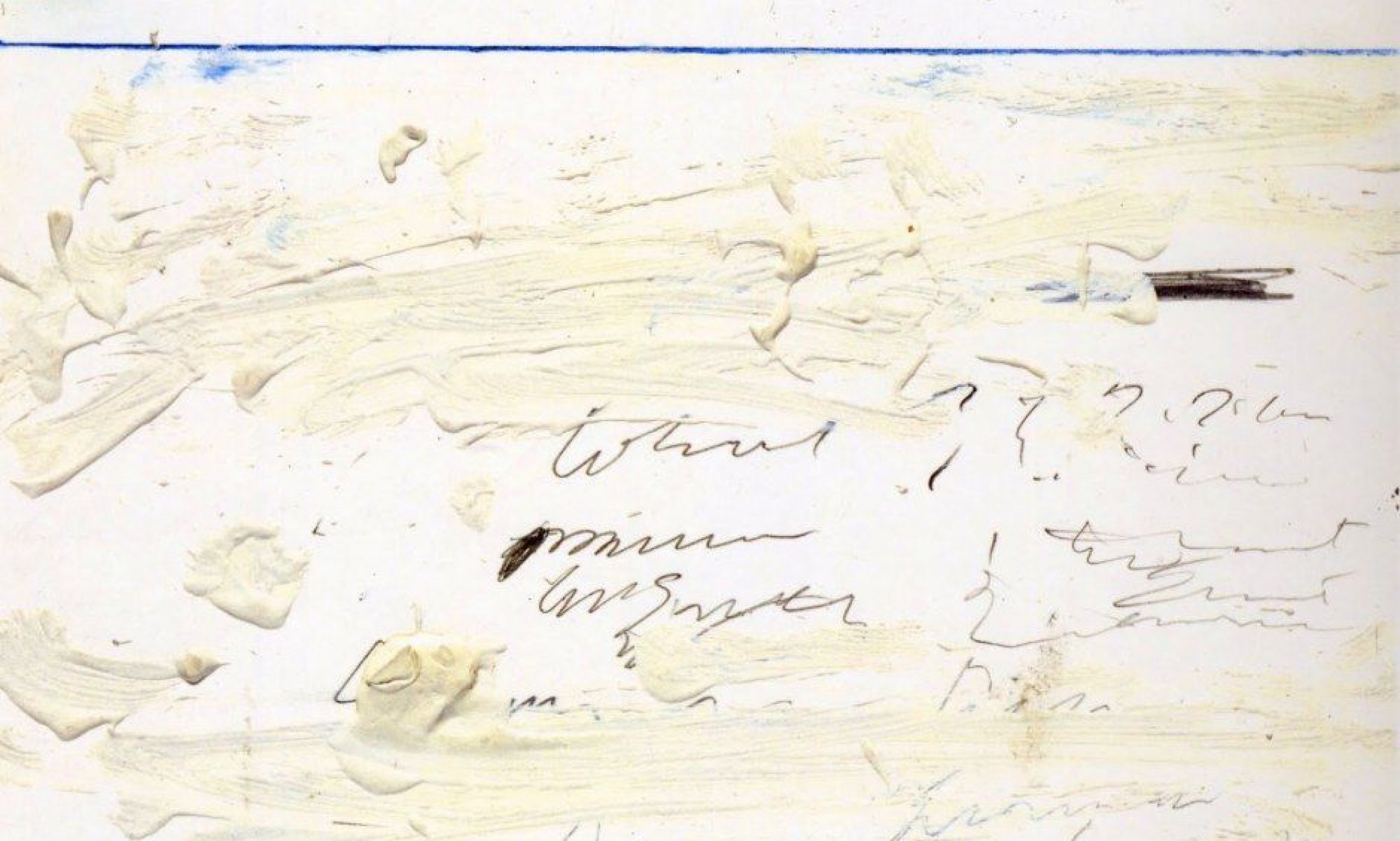Let me just do a little retrospective taxonomizing—you’ll already recognize this as prominent among my intellectual habits (or compulsions). As we listened to the exercises, we heard a range of different approaches to the assignment.
TRANSLATIONS: which often began with the Matsui, taking his abstract code and translating it into another abstract code. John’s was an instance of this; it made the tease of pattern recognition (even, of a kind of musical storytelling) palpable, while still refusing to yield a story, or referential sense. It is always open to words and music to find these purely formal relationships, not as metaphors for one another, but as corresponding structures.
JUXTAPOSITIONS: here I mean a range of experiments from soundtracks to simultaneous recitation (like Sydney’s “Merry Christmas from Hegel” or Cammie’s version of the Matsui). There are two strains to the experience, and the challenge is to think them together, on the scale of their general meaning—to draw out the expressive potential of Matsui’s code, for example, by sounding it with Holst, or to imitate the kind of thinking Carson attributes to Hegel (allowing “meanings to tenderly mingle in speculation”) by hearing both the poem and Hegel’s own prose simultaneously.
SETTINGS: in which the music and words propose themselves as local metaphors for one another, as a line in Cassy’s setting my descend into “drowsy numbness,” or as the velocity of Sam’s recitation might increase to match an accelerating ring dance.
The three terms are situated along a spectrum of dissociation and identity. In the case of the translation, word (or code) and music are distinct, though one can be transformed into the other by a mediating algorithm (and therefore you can learn some things about the formal properties of the original by listening to the translation). Juxtapositions suggest that words and music can share associations and meanings, which can interact to prompt new interpretations. Settings move toward the idea that the words are music and the music is words, that musical devices can amplify or modify the meaning of words; that words and music are both rhetorical, in the sense that they can produce effects, especially emotional effects, in listeners.
The range of options is interesting for poets as they work with the sound properties of verse, and tease them toward escape into song (a flight from meaning) or into musica humana and its forms of life, be they communal song or (cf. Wallace Stevens) solitary singing.
One question came up—maybe from Dmitri?—that I want to keep track of, the way accidental effects arise from practical experiments (e.g. the tones generated by Cammie’s percussive use of the bow). We did a little speculating about how that can happen with language—when is language MATERIAL in a way that surprises us with effects we did not think we meant? (Aishah right at the start mentioned how her performance adapted in real time to itself—really interesting and also worth more thought.)
But at least as important as any of this—Dmitri brought us a rich sense of the practical, human-to-human potentials of music making, how we use music to move each other, how between us it is. I thought all the practical advice he had to give about the exercises was really wonderful, and also his detailed sense of how, in a particular context, a musical device can change the way we think and feel about a word. It was really interesting to hear him on how composers have to manage the complexity of text and setting, so that neither overwhelms the other. I wish we’d gotten to hear him on Morley—he has a wonderful reading of how the setting extends the power of that simple text. But I was above all delighted to have his take on the exercises and I wish we had time for even more.
